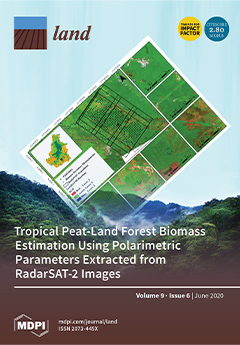Resource information
In recent decades, Russia has experienced substantial transformations in agricultural land tenure. Post-Soviet reforms have shaped land distribution patterns but the impacts of these on agricultural use of land remain under-investigated. On a regional scale, there is still a knowledge gap in terms of knowing to what extent the variations in the compositions of agricultural land funds may be explained by changes in the acreage of other land categories. Using a case analysis of 82 of Russia’s territories from 2010 to 2018, the authors attempted to study the structural variations by picturing the compositions of regional land funds and mapping agricultural land distributions based on ranking “land activity”. Correlation analysis of centered log-ratio transformed compositional data revealed that in agriculture-oriented regions, the proportion of cropland was depressed by agriculture-to-urban and agriculture-to-industry land loss. In urbanized territories, the compositions of agricultural land funds were predominantly affected by changes in the acreage of industrial, transportation, and communication lands. In underpopulated territories in the north and far east of Russia, the acreages of cropland and perennial planting were strongly correlated with those of disturbed and barren lands. As the first attempt at such analysis in Russia, the conversion of cadastral classification data into land-rating values enabled the identification of region-to-region mismatches between the cadaster-based mapping and ranking-based distribution of agricultural lands.


